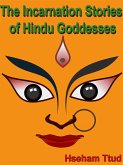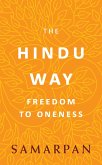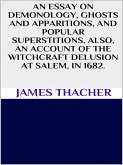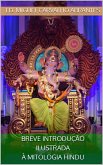The Hindu Religious Texts have their etymological significance. Even the word “Upanishad” has a variety of meanings. This word is formed in Sanskrit by joining two words: Upa (meaning close or quite near) and Nishada (meaning listening). It appears the Veda knowledge was originally explained and interpreted by the wise seers, and their disciples used to sit near them to listen to their discourses. Subsequently, they must have come to be collected and produced in the tome’s or book’s form. So they got another meaning, which means a book. But, like the Vedas, their accepted broad meaning is knowledge, profound. Since the Upanishads convey the ‘last word’ or the ultimate teachings of the Vedas, they are also called the “Vedanta”. The quest for truth is the common feature of all the Upanishads, which makes their relevance eternal.
The Hindu Religious Texts also reflect the ideal examples of the Guru-Shishya Parampara, wherein knowledge maintains its perennial flow from the mentor to the disciple. Given in the form of a question-answer format, they reveal most of these mysteries of creation in a most natural, logical manner, using a variety of similes and metaphors, symbols and allusions to explain the relationship between the soul and the Lord Supreme or Brahman with a telling effect. As a matter of fact, in the absence of the Upanishads, perhaps we might not have realized the true meaning of the Veda teachings.
This e-book contains educative, entertaining, and enlightening stories that not only guide us on to the righteous path but also quell the unrighteous tendencies inherent in us. It is hoped that these fairy tales will not only make us spiritually richer but also morally and socially better people. Although most of the stories owe their origin to the Upanishads. Some of them have been culled from other sources as well. The idea is to reveal that element through these small stories, which are fundamental to our Indian culture and ethos. The Upanishads are called “spiritual knowledge” as they convey the essence of the Veda teachings.
The Hindu Religious Texts also reflect the ideal examples of the Guru-Shishya Parampara, wherein knowledge maintains its perennial flow from the mentor to the disciple. Given in the form of a question-answer format, they reveal most of these mysteries of creation in a most natural, logical manner, using a variety of similes and metaphors, symbols and allusions to explain the relationship between the soul and the Lord Supreme or Brahman with a telling effect. As a matter of fact, in the absence of the Upanishads, perhaps we might not have realized the true meaning of the Veda teachings.
This e-book contains educative, entertaining, and enlightening stories that not only guide us on to the righteous path but also quell the unrighteous tendencies inherent in us. It is hoped that these fairy tales will not only make us spiritually richer but also morally and socially better people. Although most of the stories owe their origin to the Upanishads. Some of them have been culled from other sources as well. The idea is to reveal that element through these small stories, which are fundamental to our Indian culture and ethos. The Upanishads are called “spiritual knowledge” as they convey the essence of the Veda teachings.









